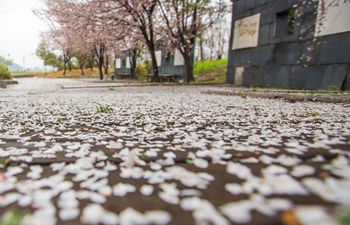CHICAGO, March 15 (Xinhua) -- Compared with standard radiation treatment, higher doses of radiation do not improve survival for many patients with prostate cancer, a study led by researchers at Washington University School of Medicine in St. Louis shows.
The study included about 1,500 patients with intermediate-risk prostate cancer that most patients fall into. To be classified in this risk category, patients generally have PSA scores of 10-20 ng/ml and a Gleason score of seven.
Both treatment groups received external beam radiation. The standard group received a radiation dose of 70.2 gray delivered over 39 treatment visits. The investigational group received increasing doses up to 79.2 gray delivered over 44 visits. A gray is the standard measure of radiation a material has absorbed.
Of the 748 men receiving standard treatment, 75 percent were still alive after eight years of follow-up. Of the 751 men receiving the dose-escalation treatment, 76 percent were alive at the eight-year mark, a difference that is not statistically significant.
Over the course of the study, 51 patients died of prostate cancer, which is 3.4 percent of all patients enrolled. At the eight-year mark, the death rate due to prostate cancer for patients receiving standard treatment was four percent compared with two percent for patients receiving the escalating dose. These rates also were not statistically different.
While there was no difference in overall survival numbers, Jeff M. Michalski, first author and professor of radiation oncology of Washington University, pointed out some differences in side effects and in whether further treatment was needed later.
Patients in the standard dose group were more likely to undergo further therapies to control tumors that had grown larger or that had spread to another site in the body. While patients in the escalating dose group experienced more side effects, such as urinary irritation or rectal bleeding, sometimes years after treatment.
During the 10 years it took to enroll enough patients in the trial, at least six new therapies were approved for recurrent or metastatic prostate cancer, and these therapies have been shown to improve survival.
"If there is a difference between standard and escalating doses, it's hard to show it when the patients who later develop recurrent cancer can have their lives extended through the use of additional therapies," said Michalski.
The study, the first that is large enough to examine whether these improved measurements translate into longer survival for patients, is published Thursday in JAMA Oncology.

















